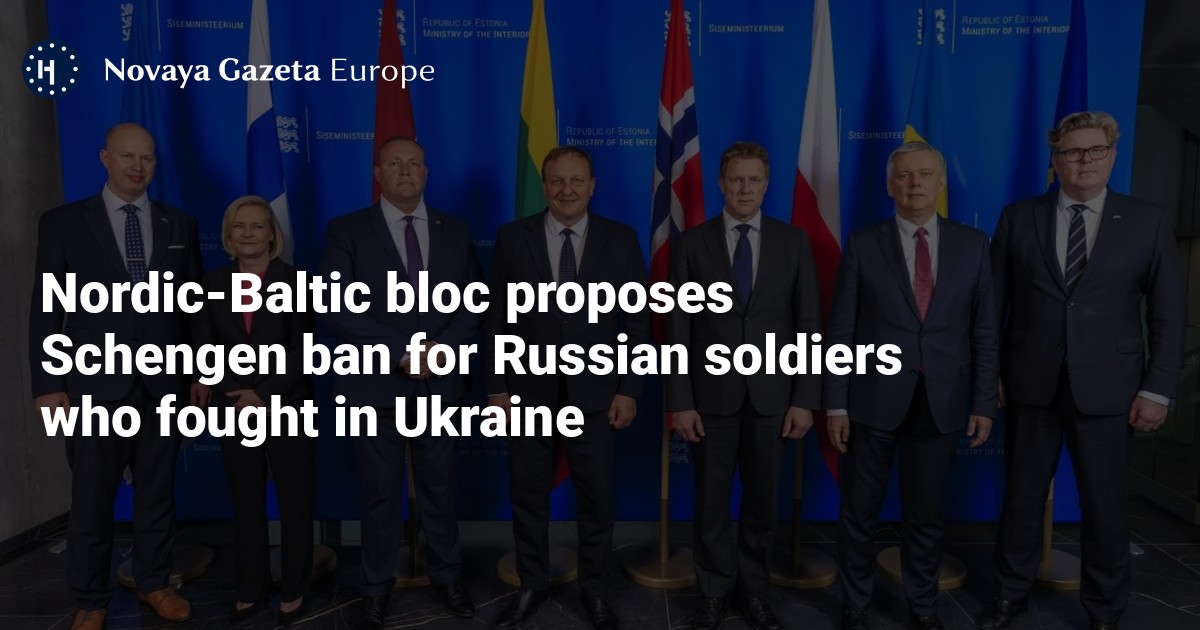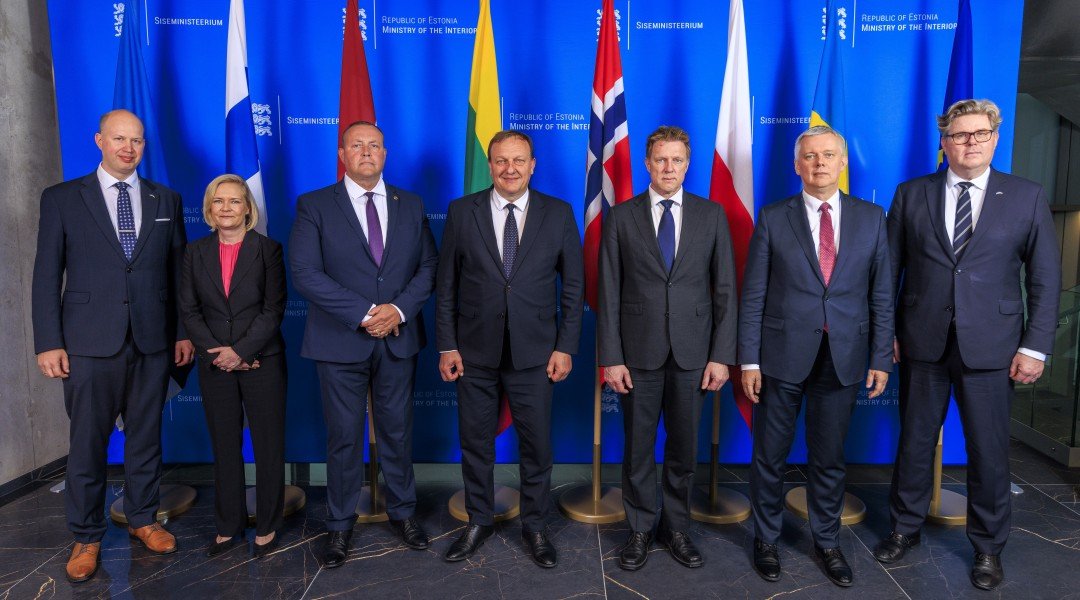




Nordic and Baltic interior ministers meet in Tallinn, Estonia, 19 June 2025. Photo: Estonian Interior Ministry
Seven Nordic and Baltic countries have called for Russian citizens who have participated in the war against Ukraine to be banned from accessing the Schengen area, according to a joint statement signed by a group of interior ministers on Thursday.
The measure was proposed by interior ministers from Estonia, Lithuania, Latvia, Norway, Poland, Sweden and Finland, who met in Tallinn, the capital of Estonia, on Thursday. All of the joint statement’s signatories except Sweden share a border with Russia.
In a joint statement, the countries said a visa and residence permit ban for Russian soldiers who fought in Ukraine was necessary to counter “threats emanating from Russia” and support the “internal security of the European Union”.
"There are hundreds of thousands of Russian citizens who have fought against an independent European country, and we should take a very clear stance that these people cannot travel freely in Schengen — we will not grant them residence permits, we will not grant them visas,” Estonia’s Interior Minister Igor Taro told public broadcaster ERR after the announcement.
Their agreement follows an announcement by the larger Nordic Baltic 8++ group — comprising 13 countries including Germany, France, and the United Kingdom — pledging further “coordinated action” against Russia’s shadow fleet, comprising vessels helping Russia circumvent the Western-backed price cap initiative on Russian oil, after a high-level meeting in Warsaw.
In a joint statement issued on Thursday, the countries committed to tackling stateless and falsely flagged vessels, those that lack or misrepresent national registration in violation of the United Nations Convention on the Law of the Sea, and pledged to develop shared guidelines for addressing the issue.
“If vessels fail to fly a valid flag in the Baltic Sea and the North Sea, we will take appropriate action within international law”, the statement read.
In a separate unilateral statement, Poland, which currently possesses the presidency of the Council of the European Union, emphasised “combating the illegal activities of the ‘shadow fleet’” as one of the country’s top foreign policy priorities.
In May, a ship from Russia’s shadow fleet was accused of making “suspicious manoeuvres” near an undersea power cable in the Baltic Sea, prior to its interception by a Russian military vessel, after which the ship returned to port in Russia.
